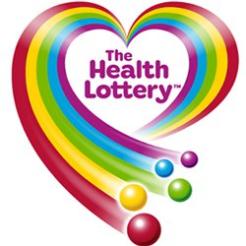More than 100 charities have already expressed interest in receiving funds from the newly-launched Health Lottery despite criticism that it gives too little to good causes.
John Hume, chief executive of the People’s Health Trust which distributes the money raised by the Health Lottery, said that the organisation has already been approached by dozens of charities.
Following criticism of the proportion of proceeds which go to charity (20p in the pound) and concerns that it might cannibalise the National Lottery, Hume said that his organisation firmly believes that the Health Lottery can grow the market.
Tickets, which went on sale last Thursday for this Saturday's inaugural draw, are "selling very well indeed” said Hume, adding that this indicates the lottery is on track to distribute its target of £50m within the year.
Hume said there will be announcements about specific funding streams on 10 October, but that the People’s Health Trust intends to invest its funds back in specific areas in proportion with the amount of money made by the lottery in a specific area. “We want to do something a little different as a funder,” Hume said.
Prevention will be a major theme of grantmaking. “Health is about being well for as long as possible,” said Hume. “Not about the absence of illness.”
Additionality principle
He said that despite government cuts, the £50m the lottery is expected to raise per annum will not be used to subsidise NHS or local government spending cuts. “We’ve got to be additional to government funding,” he said.
The People’s Health Trust will begin a consultation with local communities in the autumn to discover what services and initiatives local people want the lottery to fund in their area. England is to get the lion’s share of lottery revenue, an expected £42m, followed by Scotland with £5m and Wales with £3m.
Scots wary of lottery association
However, there has been a particular amount of noise from Scotland which claims the business activities of the Lottery’s owner, Richard Desmond, might cause some Scottish charities to think twice about accepting money from its proceeds.
John Downie, director of public affairs at SCVO, said in a blog on the subject, “A significant element of Desmond’s business and money is in the pornography industry which is linked to the abuse of women. Are his motivations really altruistic or are they driven by business?”
He wrote that while the money was “enticing” he is concerned that charities might harm their reputation by accepting money made by Desmond.
“As someone who knows a bit about reputation and stakeholder management I would caution any organisations to think carefully,” he wrote.
“I’m not saying not to take money from this new lottery, but to consider all the risks and, if you do, be ready to justify what you did.”
Prior to the first lottery draw, Sir Stephen Bubb, chief executive of Acevo, claimed that Desmond was motivated by profit and called the venture “a disgrace”.









